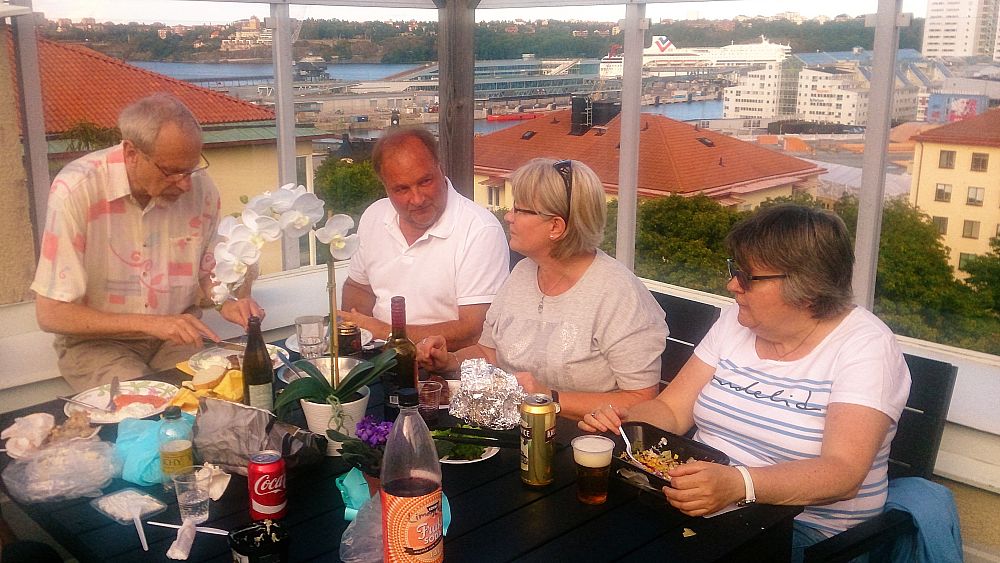
For many older LGBTQ+ the prospect of moving into a retirement home is a worrying thought. But in Sweden, Spain and France new retirement communities for LGBTQ+ seniors are proving a hit.
“Care home staff don’t realise that they have LGBTQ+ residents – but based on population estimates we know they do. It’s just that residents don’t feel comfortable or safe being identified as LGBTQ+”, explains Professor Paul Willis, an expert in social care.
Older members of the LGBTQ+ community can “be at higher risk of loneliness, they are more likely to be single and live alone. They are also less likely to have children”, he tells Euronews.
However, new LGBTQ+ senior communities – which aim to tackle this isolation and social exclusion – are cropping up across Europe.
Sweden
In 2013, Regnbågen – which means rainbow in Swedish – became Europe’s first LGBT retirement community. A decade later, more than 30 thirty residents call it home.
Located in a leafy suburb of Stockholm, residents aged over 55-years-old occupy the upper three floors of an eight-storey retirement complex.
Christer Fällman is the founder, he came up with the idea for the community when he attended Stockholm’s 2009 Pride.
“I was at a debate hosted by older LGBT people – they were worrying about their futures and where they would live”, he told Euronews. Christer was only 51 at the time, but a realisation dawned on him. “I thought to myself, good point – where will I grow old?”
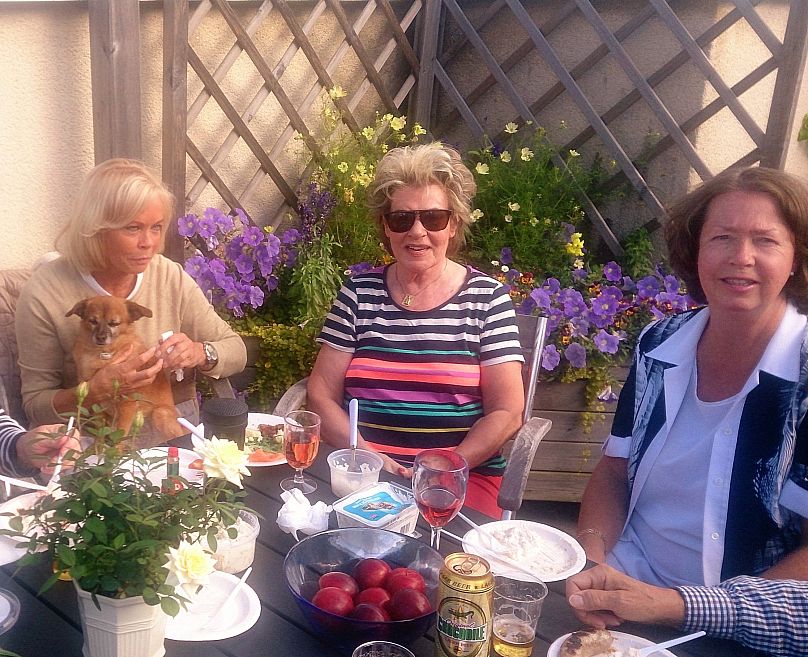
Christer rushed to action and began to submit funding applications to the Stockholm City Council. Four years on the first residents arrived – and to his surprise Christer was one of them. “I had not planned on moving in but then a room came free and I became the block’s youngest resident!”
Same-sex relations were legalised by Sweden in 1944 – and they became equal to heterosexual relationships in 1972. In 2009, Sweden would become the seventh country in the world to legalize same-sex marriage.
Though five couples live in Regnbågen, most of the residents live alone.
72-year old Pia Faxén moved in last year, after her long-term partner, Monica, became terminally ill.
“We were living in an apartment in the city centre but it was too big for me to live in alone”, she told Euronews. “I wanted to be in a place with a sense of community, where people would take care of one another.”
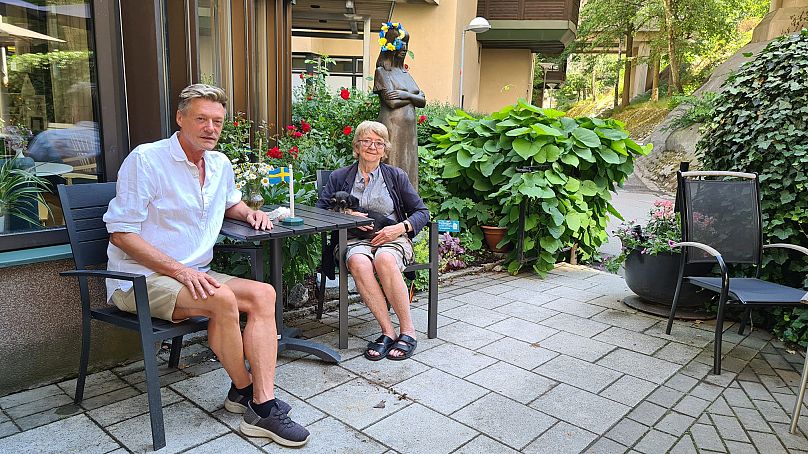
Pia’s partner has since passed away, but she has managed to find comfort in her newfound “family.”
“I don’t need to explain myself here. I wanted to live with other gay people because they have the same background, we understand each other.”
Residents have access to a rooftop terrace, as well as a hairdresser and health clinic. But Regnbågen has a waiting list of close to 300 people – for only 28 flats. Founder Christer Fällman believes there is still a long way to go.
“I feel like the government and politicians think it is enough that we were the first in Europe to open this kind of LGBT living space. But we need more spaces like this across Sweden so that everyone can find their place.”
France
La Maison de la Diversité is a new residential block for LGBTQ+ seniors which plans to open in Lyon by the end of 2024.
François Daudin, 65, is a future resident, and excited to move in.
François spent years searching for senior LGBTQ+ housing before finding the project. “Many of us don’t have children or family but also don’t want to live alone. There is a real lack of housing options for us.”
He currently lives in the outskirts of Lyon – in an area where he doesn’t feel safe enough to show any public affection to his boyfriend when they are out.
“We would never dare kiss, or hold hands, for fear of being attacked. For me, living in the community would also give me a sense of security.” France decriminalised homosexuality in 1982 – but same sex marriage was not legalised until 2013.
At Maison de la Diversité, each resident will have their own apartment – some of which will have a subsidised rent – as well as access to shared communal spaces.
Like François, seven other prospective residents have already signed up for flats. They keep in touch via WhatsApp and are currently figuring out how they will manage the place.
“All sorts of questions are arising – what happens if a resident falls sick? What types of people will be accepted into the residence? It is for the residents to decide and draft up the rules. But of course there will be a manager and volunteers on site to accompany them”, explains Stephane Sauvé. He is the man behind the project and also runs Les Audacieux & Audacieuses, an outreach charity for LGBTQ+ seniors.
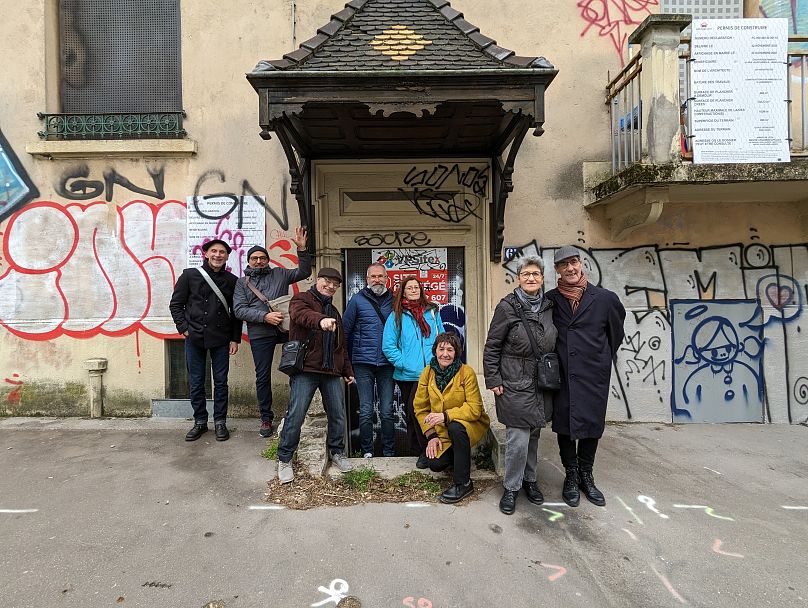
Stephane spent many years managing care homes across France before dedicating himself to charity work. Stephane’s charity also delivers workshops in care homes to tackle stigmas around sexuality and homosexuality for the older population.
“One man was asked by a carer who the man in the framed picture on his bedside table was. He scrambled for words and then said it was his cousin. The next day he had hidden the picture in his wardrobe”, he told Euronews.
Though Stephane stresses the carer was well-meaning in this instance, he also points to other cases of explicit homophobia.
“There was a lesbian woman in one of the homes I ran. She was the only woman who was never asked to dance by the other women during the weekly tea dances. There was chatter about women being attracted to her if they asked her to dance.”
Despite this, Stephane remains positive and ambitious.
“We aim to open ten of these LGBTQ+ senior living blocks in the next ten years across France! Watch this space!”
Spain
In Madrid, Spain’s first-ever council-funded LGBTQ+ retirement home will open by the end of 2024.
It will include 62 rooms spread across four floors in a building spanning more 3000 square metres.
Federico Armentero has spent the last 13 years campaigning to open the home. He named his charity Fundación 26 de Diciembre after the date in 1978 when Spain decriminalised Spain.
Federico explains that he came out to his family and friends in his mid-thirties.
“My generation was born at a moment in history when homophobia was rife and internalised by much of the population. Many older LGBTQ+ people have lived on the fringes of society. They don’t feel they deserve a place where will be supported, cared for and welcomed.”
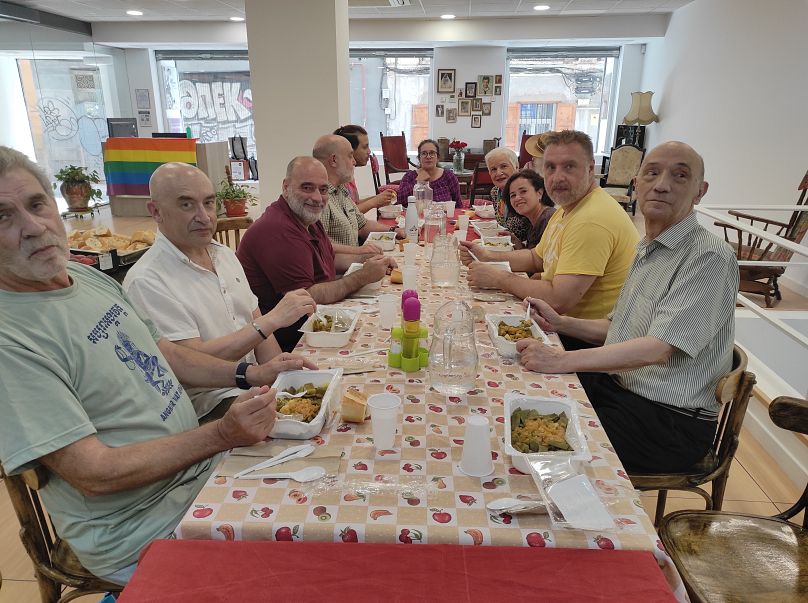
When he began speaking to the LGTBQ+ community about retirement prospects, Federico realised that many older people “were terrified at the thought of going back into the closet. I don’t want to be in a Catholic retirement home with paintings of the Virgin Mary – I want a place where there can be paintings of two women kissing on the walls!”
The project is a costly endeavour – and they have already spent €2.1 million euros on renovating the site of the future home. But the goal of providing affordable care for the LGBTQ+ community is central to Federico’s mission.
“Many pensioners from the LGBTQ+ community are living on a pension of €400 per month. It is essential to provide decent housing for all people – even those with financial difficulties.”
Ten of the rooms on site will be reserved for palliative care. There will also be the possibility for residents to have euthanasia on site (which was legalised under specific conditions in 2021 in Spain).
For Federico, retirement homes should be viewed as a positive thing “we are going to hire almost 60 people at the home! The elderly are not the country’s ruin, on the contrary, we generate jobs, wealth!”





